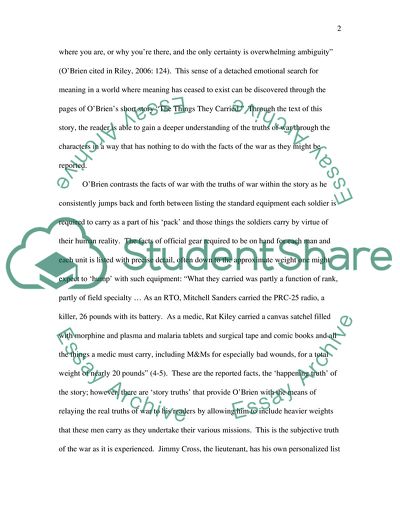Exploring the Truth through The Things They Carried Essay Example | Topics and Well Written Essays - 1500 words. https://studentshare.org/literature/1719388-the-thing-they-carried
Exploring the Truth through The Things They Carried Essay Example | Topics and Well Written Essays - 1500 Words. https://studentshare.org/literature/1719388-the-thing-they-carried.


